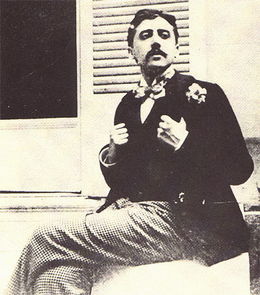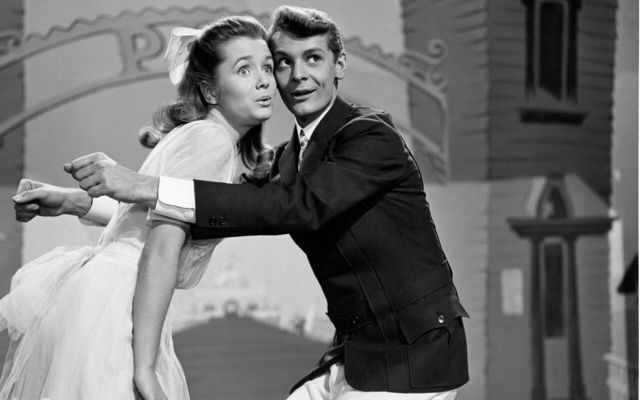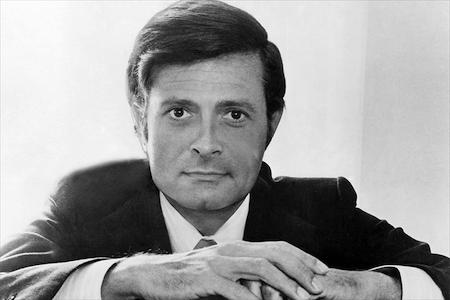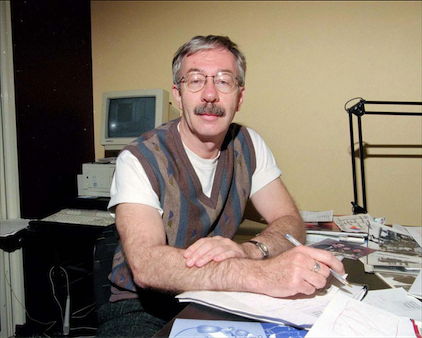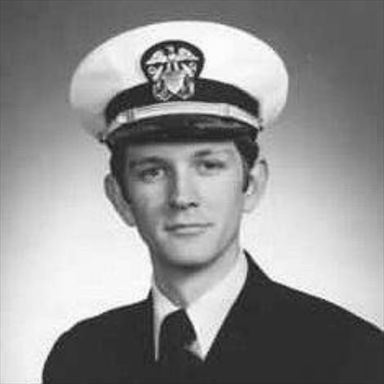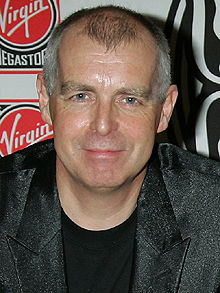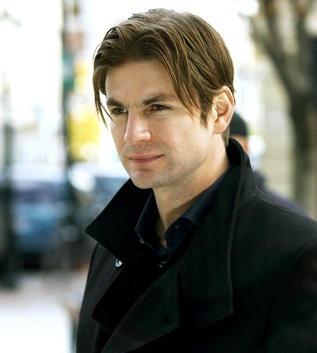|
presents THIS DAY IN GAY HISTORY based on: The White Crane Institute's 'Gay Wisdom', Gay Birthdays, Gay For Today, Famous GLBT, glbt-Gay Encylopedia, Today in Gay History, Wikipedia, and more …
Collected by Ted July 10 [{(o)}]|[{(o)}]|[{(o)}]|[{(o)}]| [{(o)}]|[{(o)}]
1871 – Marcel Proust (d.1922) was a French novelist who suffered from chronic asthma and wrote - mostly at night - in a cork-walled room. His vast novel Remembrance of Things Past (Á la Recherche du Temps Perdu) recounts the life of his hero, virtually Proust himself. It has no plot in the usual sense, but is closely woven together like a symphony by the recurrence of the same characters and the same themes. Memory plays a large part in the construction, and remembered scenes from boyhood are the device by which the more usual chronological method is replaced. There are many length digressions, ranging from the metaphysical dissertations on the flight of time and the timelessness of sensation to beautiful passages on architecture and art. In 1912, when Proust sought to have his manuscript published, it was summarily rejected. The report of a publisher's reader survives. Ironically, the first third of the many-volumed novel, so rich in aesthetic, scientific and philosophical learning, and today considered perhaps the most remarkable literary work produced in the first half of the 20th century, was rejected on the grounds that "one has no idea of what it's all about...nothing happens in these 700 pages." One of Proust's major themes, of course, is homosexuality, but the subject is confused because, as Andrè Gide was the first to point out, Proust made certain characters female when he really meant them to be male. Thus the character of Albertina, for example, is really based on Proust's own chauffeur-love, Alfred Agostinelli, a daring young Italian so in love with speed of newly invented machines that he died (in 1914) while learning to pilot a primitive airplane. In the past, English and American readers have undoubtededly wondered why so much fuss has been made about Proust, since his famous book seems at times to be insufferably boring. The reason is the Scott Moncrieff translation that is not only dated in its stilted language, but severely bowdlerized to protect the virtue of the Anglo-Saxon reader. Gratefully, the Terence Kilmartin translation is both modern and unexpurgated. Proust, at long last, is permitted to be Gay.

1909 – The book Road to Oz, the fifth in the Oz series by L. Frank Baum is published. In gay slang, a "friend of Dorothy" is a term for a gay man. While the precise origin of the term is unknown, some believe it is derived from this book. The book introduces readers to Polychrome who, upon meeting Dorothy's traveling companions, exclaims, "You have some queer friends, Dorothy," and she replies, "The queerness doesn't matter, so long as they're friends." More commonly, "friend of Dorothy" refers to the film "The Wizard of Oz" because Judy Garland, who starred as the main character Dorothy, is a gay icon. In the early 1980s, the Naval Investigative Service (NIS) was investigating homosexuality in Chicago. Having heard gay men refer to themselves as "friends of Dorothy," the NIS went on a futile search for the elusive woman clearly at the center of a homosexual ring.
1925 – Boyd McDonald (d.1993) was an American writer, editor, and publisher of the long-running gay pornography and erotic literature zine S.T.H., or Straight to Hell. He sometimes prefixed his name with the title of "Reverend," from a mail-order divinity degree he purchased. McDonald was born in South Dakota in 1925. He attended Lake Preston, South Dakota High School, but did not graduate. Despite his lack of a high school diploma, he was admitted to Harvard University and given a small scholarship. He was soon drafted into the Army. After discharge from the Army he returned to Harvard (Eliot House) and earned a degree in American history and literature. He said that "of all the benefits I got from Harvard, I am most grateful for the opportunity it gave me, albeit unwittingly, to come out fast and thoroughly." He frequently attended gay parties "that quickly turned into orgies;" his "first serious lover" was a straight football player he met at one such party. Late in his life, McDonald stated "I feel homosexuality is a gift, an advantage." He explained that the main advantage of homosexuality was the opportunities it provided for sexual encounters with many men, which promiscuity he endorsed and celebrated. He believed all men wanted these sexual encounters, even if they would not admit it to themselves. He was as contemptuous of monogamous gay couples as of straight ones, and opposed so-called Castro clones who were "determined to take homosexuality out of the toilet" and "introduce their lovers to Mom and Dad." He had his greatest contempt for hypocrites, those engaging in gay sex while publicly defending heterosexual monogamy. After graduation, he worked as a writer for Time, Forbes, IBM, and for several Wall Street firms. He found the jobs to be "irredeemably corrupt," and the stress caused him to begin drinking. He credits abandoning his traditional career with "saving his life." He subsequently began to live as transient, keeping personal possessions to a minimum. In 1973, while living on welfare in an Upper West Side SRO (for years before his death he was living in "Riverside Studios" at 342 West 71st St.), he founded his long-running zine S.T.H. or Straight to Hell, which consisted primarily of readers' submissions of their sexual experiences, together with Boyd's sexual or political commentary and single male pictures, reader-sent or from studios such as Old Reliable or Athletic Model Guild (always credited). He also published a number of anthologies of reader-contributed true sex histories. McDonald was friends with a number of other gay pornographers and pro-sexual figures, such as David Hurles and Kenneth Anger. In later years, McDonald was diagnosed with a severe anxiety disorder, agoraphobia, and obsessive compulsive disorder, and rarely left his home. In 1992, he wrote in Lewd that "as the years have gone by and it has become more difficult than it was in childhood to find men to molest me and perpetrate crimes against nature, I have come to love abusing myself more and more." In a 1981 interview with The Advocate, he boasted that "recently I jacked off almost continuously for five days—except for when I went out for food." McDonald died in September 1993 as a result of a pneumococcal infection complicated by emphysema, two months after completing his final book, Scum. Much of his correspondence and papers were discarded by his relatives. McDonald reviewed films broadcast on commercial television for gay publications, primarily Christopher Street magazine as well as New York Native, Connection, and Philadelphia Gay News. His reviews typically focused on the physique and clothing (or lack thereof) of the male actors in each film, arguing that all other elements of film are "but a distraction from the main point of movies, the exhibition of beautiful and exceptional people." In 1985, his reviews were collected into the book Cruising the Movies: A Sexual Guide to 'Oldies' on TV, published by Gay Presses of New York.
Carleton Upham Carpenter Jnr was born in Bennington, Vermont, and left school to serve as a Seabee (a member of the Naval Construction Battalion). He helped to build the airstrip on Tinian Island from which Enola Gay departed to bomb Hiroshima. "I had no idea what a Seabee was," recalled Carpenter, who came out as gay in the 1970s. "There I met a young guy called Costello. I had feelings for him but didn't understand what they were. Ultimately he was my first love, but at the time I couldn't comprehend what it was. I was so naïve." Back home he enrolled at Northwestern University in Illinois, specialising in theatre arts and finding work as a clown at carnivals. "I wore stilts," he said. "It taught me balance and bravery." He appeared on Broadway in the play Bright Boy, followed by Career Angel and Three to Make Ready. Carpenter made his film debut in the controversial Lost Boundaries (1949), based on the true story of a black doctor (played by Mel Ferrer) who passes for white in a New England town. The following year he signed for MGM; his first role was as a handyman who fixes Judy Garland's tractor in Summer Stock (1950). They became great friends, he recalled. But he was uncomplimentary about her co-star Gene Kelly: "He had a huge ego and was mean to me, doing all he could to keep me off camera. He had a complex about his height [Carpenter was 6ft 3in]... He smiled at me all the time but he had a knife in my back."He played a rodeo cowboy in the slight romance Sky Full of Moon (1952), then made his final film for MGM, the Korean War drama Take the High Ground! (1953), with Richard Widmark, before concentrating on stage, television and radio work. During the Vietnam War, he and Mary Martin took Hello, Dolly! to the front. Carpenter was also a songwriter, penning such songs as Christmas Eve, which was recorded by Billy Eckstine. He also wrote material for Marlene Dietrich and Kaye Ballard as well as several scripts for television shows. In the 1970s Carpenter returned to Broadway for The Greatest Story Ever Told and Roberta. He retired to Long Island, where he wrote paperback mysteries including Deadline, which in the 1980s was turned into a Broadway musical. Carleton Carpenter's memoir The Absolute Joy of Work was published in 2012.
1931 – Jerry Herman is an American composer and lyricist, known for his work in Broadway musical theater. He composed the scores for the hit Broadway musicals Hello, Dolly!, Mame, and La Cage aux Folles. He has been nominated for the Tony Award five times, and won twice, for Hello, Dolly! and La Cage aux Folles. In 2009, Herman received the Tony Award for Lifetime Achievement in the Theatre. He is a recipient of the 2010 Kennedy Center Honors. "I have always been drawn to outrageous, larger-than-life female characters," writes Jerry Herman in a memoir of his career as a Broadway composer and lyricist. So it is not surprising that, although seemingly retired from the musical comedy stage, he remains the best proponent of the "diva musical," described by theater historian John Clum as a musical comedy "about a woman's escape from the humdrum" and pedestrian life to which social convention would consign her. More importantly, as Clum also notes, the diva musical allows a gay theater audience "an escape from the oppressive life into magic" through worship of a female star who has no hesitation--in the words of Herman's Zaza--to "put a little more mascara on" and turn the world into something "ravishing, sensual, fabulous, . . . glamourous, elegant, [and] beautiful." Thus, Dolly Levi "puts her hand in" and rearranges everyone's life for the better; Mame Dennis coaxes the blues right out of the horn and teaches everyone to celebrate simply because "it's today"; actress Mabel Normand lights up not only the movie screen but every room she walks into; Mrs. Santa Claus restores childhood innocence, advocates gender equality, and saves Christmas; and transvestite extraordinaire Zaza proudly boasts "I am what I am" while teaching sour moralists that "the best of times is now." Born to middle-class Jewish parents in Jersey City, New Jersey, Herman was the only child of ardent theater-goers who introduced him to the joys of the Broadway musical at an early age. His family ran a summer camp where Herman worked until he was 21, in the process discovering a talent for producing musical entertainments. An audition for Frank Loesser (Guys and Dolls) encouraged Jerry to work full time as a composer, and after writing the music for three off-Broadway plays, he scored a major success with Milk and Honey (1961). Shortly thereafter David Merrick hired him to write the music and lyrics for Hello, Dolly! (1964; film 1969), and for the next twenty years Herman was one of the most bankable talents on Broadway. Mega-hits such as Mame (1966; film 1974) and La Cage aux Folles (1983) alternated with box office failures such as Dear World (1969) and Mack and Mabel (1974) that nonetheless quickly attained cult status. In addition to a revue of songs from his shows (Jerry's Girls, 1985), Herman has written the scores for the musically less-interesting The Grand Tour (1979) and for Mrs. Santa Claus (1996), a television musical created for Angela Lansbury that has become a stalwart of the Christmas holiday season. Herman was diagnosed HIV-positive in 1985. As noted in the "Words and Music" PBS documentary, "He is one of the fortunate ones who survived to see experimental drug therapies take hold and is still, as one of his lyrics proclaims, 'alive and well and thriving' over quarter of a century later." Increased public awareness of the spreading AIDS epidemic gave the lie to La Cage's claim that "The Best of Times Is Now." Resistance through grand gestures is the pose of both the diva and the drag queen; AIDS required a different theater of resistance, black comedy rather than screwball comedy. Commenting upon the sudden reversal of opinion concerning La Cage aux Folles in the mid-1980s, Mark Steyn—in an aggressively homophobic account of the Broadway musical— notes that "One minute . . . [it] was the biggest homegrown hit of the day; the next it was gone," largely because as public perception of AIDS grew, "fags weren't funny anymore; fags meant disease and death." As Herman himself observes, "the upbeat, feel good songs that I write" no longer resonated with audiences. Criticism of Herman's optimism as escapist is unfair. There is a strong satiric impulse in such songs as "Masculinity," "It Takes a Woman," and "The Spring Next Year" that is every bit as socially engaged as Burton Lane's much lauded challenge to American racism in Finian's Rainbow. Ironically, however, the moment when Albin, refusing to fashion himself to suit anyone else's expectations, pulls off his wig at the end of "I Am What I Am" was not only the very moment when gays asserted themselves most openly on the Broadway stage; it was also the moment when American gay culture lost its need of a diva to voice its concerns and became free to raise them in its own voice. Thus, Herman's plays seem dated to newer gay audiences raised on Stephen Sondheim's ambivalence and on the openly gay musicals of William Finn in which characters do not need musicals to feel good about themselves. Even as La Cage aux Folles made homosexuality the undisguised subject of a popular musical, challenged the hypocrisy of the self-proclaimed moral majority empowered by the presidency of Ronald Reagan, and provided gays with a national anthem ("I Am What I Am"), Herman found himself bypassed by the very parade that he had been leading.
1931 – Nick Adams (d.1968), American actor, born Nicholas Adamschock, was a diminutive, blond actor who usually played neurotic or aggressive types and sometimes comic sidekicks (as Andy Griffith's bespectacled pal, Ben, in No Time For Sergeants). He has been noted for his supporting roles in successful films during the 1950s and 1960s along with his starring role in the ABC television series, The Rebel. He died by his own hand at 36 in 1968. Hollywood rumor had it that, since big things come in small packages, Adams was a successful hustler while he and his roommate, James Dean were trying to break into acting. (In some versions of the story, Dean himself was out hustling as well.) Adams may have first met James Dean in December 1950 while jitterbugging for a soft drink commercial filmed at Griffith Park. Adams spent three years in the US Coast Guard between the time this commercial was shot in late 1950 and the start of filming for Rebel Without a Cause, in which he had a bit part, in March 1955. Actor Jack Grinnage, who played Moose, recalled, "Off the set, Nick, Dennis, and the others would go out together—almost like the gang we portrayed—but Jimmy and Corey Allen... were not a part of that." Dean and Adams became friends during filming. During breaks, Dean and Adams entertained cast and crew with impersonations of Marlon Brando and Elia Kazan (who had directed Dean in East of Eden). A 1955 Warner Brothers press release quoted Dean as saying, "I shall be busy for the rest of 1955, and Nick will be doing film work for the next six months. Come 1956, however, I wouldn't be surprised to find myself with Adams doing a two-a-night nightclub routine—or acting in a comedy by William Shakespeare." When production was wrapped, Dean said in another press release, "I now regard Natalie, Nick and Sal as co-workers; I regard them as friends... about the only friends I have in this town. And I hope we all work together again soon." In his 1985 gossip book about gay Hollywood, Conversations With My Elders, Boze Hadleigh claimed actor Sal Mineo told him in 1972, "I didn't hear it from Jimmy (James Dean), who was sort of awesome to me when we did Rebel. But Nick told me they had a big affair." Following Dean's 1955 death in an automobile accident, Adams overdubbed some of James Dean's lines for the film Giant (these are in Jett Rink's speech at the hotel) and dated co-star Natalie Wood. Adams tried to capitalize on Dean's fame through various publicity stunts, including a claim he was being stalked by a crazed female Dean fan, allowing himself to be photographed at Dean's grave in a contemplative pose, holding flowers and surrounded by mourning, teenaged female fans along with writing articles and doing interviews about Dean for fan magazines. Nick Adams' widely publicized friendship with Elvis Presley began in 1956 on the set of Presley's film Love Me Tender during the second day of shooting. Presley had admired James Dean and when the singer arrived in Hollywood he was encouraged by studio executives to be seen with some of the "hip" new young actors there. Presley's girlfriend June Juanico complained the singer was always talking about his friend Adams and James Dean. She was also upset that Adams had started inviting himself to see Elvis, and Juanico felt that she was trying compete for Elvis' attention. Adams would talk often about Natalie Wood to Elvis, constantly discussing her figure and her beauty, something else that caused Juanico to feel that she would soon lose Elvis to the glitz of Hollywood. Presley's own mother even commented about Adams, "He sure is a pushy little fellow". John Gregory Dunne confirms that "James Dean was bisexual, as were Nick Adams and Sal Mineo." In his book Elvis (1981) Albert Goldman wrote, "Nick Adams ingratiated himself with James Dean precisely as he would do a year or so later with Elvis. He offered himself to the shy, emotionally contorted and rebellious Dean, as a friend, a guide, a boon companion, a homosexual lover — whatever role or service Dean required." In 2005 Byron Raphael and Presley biographer Alanna Nash claim Adams may have "swung both ways" like "Adams' good pal (and Elvis' idol) James Dean. Tongues wagged that Elvis and Adams were getting it on." Earl Greenwood, author and biographer David Bret, and Adams' former fan mail secretary Bill Dakota made similar statements. On the night of February 7, 1968 his lawyer and friend, ex-LAPD officer Erwin Roeder, drove to the actor's house in Beverly Hills to check on him after a missed dinner appointment. Seeing a light on and his car in the garage, Roeder broke through a window and discovered Adams in his upstairs bedroom, slumped dead against a wall. During the autopsy Dr. Thomas Noguchi found enough paraldehyde, sedatives and other drugs in the body "to cause instant unconsciousness." The death certificate lists "paraldehyde and promazine intoxication" as the immediate cause of death along with the notation accident; suicide; undetermined. At the time of his death Nick Adams was the lover of a movie actor, rumored to have been Robert Conrad.
1933 – New York Times television critic, John J. O'Connor (d.2009) joined The Times as a television critic in 1971 and retired in 1997. His tenure oversaw the sweeping changes in television from a time when it was ruled by three networks to the modern state of cable and broadcast television media with hundreds of cable outlets. He began his career as a copy editor at The Wall Street Journal in 1959, later becoming the Journal's arts editor and theater and dance critic, in which capacity he continued at The New York Times. He served at the Times for 25 years, mostly as a television critic. He and his partner of 47 years, author and translator of children's books Seymour Barofsky, adopted a son who died of lymphoma at the age of seven. O'Connor was diagnosed with lung cancer four weeks before his death at the age of 76. He died at his home in Manhattan.
Hannon gained fame as a result of references to pedophilia in his article "Men Loving Boys Loving Men" (1977), published in the now-defunct The Body Politic. Hannon was acquitted of obscenity charges laid in connection with the article. He was later the subject of media controversy in 1995, when several mainstream journalists attacked Ryerson University for employing him as a journalism instructor while he was simultaneously, and openly, working as a male prostitute. Hannon was born in Bathurst, New Brunswick, in 1944, and moved with his family to Marathon, Ontario, at age 3. His father was emotionally and physically abusive, and his mother would later come out as lesbian. He later moved to Toronto, Ontario, completing high school at St. Michael's College. In 1972, Hannon joined the editorial group that produced the Toronto LGBT magazine The Body Politic, and was one of its most prolific writers.In the magazine's November 1977 issue, Hannon published an article titled "Men Loving Boys Loving Men", a profile of three men who were having sexual relationships with underage males. The article contained sentences like "Boy-love is not child molestation," which provoked a backlash. That December, Toronto Sun journalist Claire Hoy began publishing columns attacking Hannon and The Body Politic for promoting child abuse. The magazine's offices were raided by Toronto police on December 30, 1977. Twelve boxes of material, including the magazine's subscription lists, were taken. On January 5, 1978, the paper and its publishers were charged under section 164 of the Criminal Code with "use of the mails to distribute immoral, indecent or scurrilous material". The case reached trial on January 2, 1979, with prosecution testimony by Hoy and Ken Campbell. In six days of testimony, only one piece of documentary evidence — a copy of the issue containing Hannon's article—was presented to the court. On February 14, The Body Politic was acquitted of the charges. The Body Politic ceased publication in 1987, a few years after its publisher (now incorporated as Pink Triangle Press) launched the tabloid Xtra!. Hannon became a freelance journalist. He has won thirteen National Magazine Awards as a freelancer, among them for profiles of Tomson Highway and John Bentley Mays and for a Toronto Life article titled "The Alchemy of Pork Fat". He also occasionally worked as a sex worker, and was employed as a part-time journalism instructor at Ryerson University. On March 11, 1995, The Globe and Mail published Hannon's "The Kiddie Porn Ring That Wasn't", an investigative piece on "Project Guardian", an operation led by then-London, Ontario police chief Julian Fantino into an alleged child pornography ring. The investigation resulted in the arrest of 45 gay men, but the alleged child pornography in fact involved not children but male hustlers older than the legal age of consent. Only two people were ever arrested on pornography charges, while all of the other defendants were charged with offenses unrelated to the stated purpose of the investigation, such as prostitution and drug-related charges. As a result, Hannon asserted that the investigation was merely a smokescreen for a homophobic witch hunt. On November 25, 1995, the Toronto Sun ran an exposé on Hannon's occasional prostitution under the headline "Ryerson Prof: I'm a Hooker". Hannon acknowledged that he occasionally worked as a prostitute. Ryerson suspended Hannon on November 26. The following day, the Canadian Union of Public Employees filed a grievance on Hannon's behalf, asserting that there were no grounds for a disciplinary enquiry since no staff or student of the university had complained about any inappropriate behaviour on Hannon's part. Ryerson reinstated Hannon for the winter semester and placed a letter of reprimand in his file, but did not renew his contract at the end of the school year. He has not taught at Ryerson since. Hannon died on May 9, 2022, by medical assistance in dying (MAID), four years after being diagnosed with atypical Parkinson's disease. His memoir, Immoral, Indecent & Scurrilous: The Making of an Unrepentant Sex Radical, was completed before his death.
The documentary about the life and 1978 assassination of the openly gay San Francisco Supervisor Milk by a former supervisor also won two Emmys, a Peabody and the New York Film Critics Circle awards. Schmiechen and San Francisco director Robert Epstein solicited members of gay and lesbian organizations to raise money for the $300,000 film. Born in St. Louis, Schmiechen grew up in Pekin, Ill., and was educated at Grinnell College in Iowa and the film school of Columbia College in Chicago. He was chairman of the board of the Assn. of Independent Filmmakers and a board member of the Independent Television Service. Schmiechen's 1992 documentary "Changing Our Minds: The Story of Dr. Evelyn Hooker" was also nominated for an Academy Award. That film described the work in the 1950s of the psychologist who first challenged the belief that homosexuality was a mental illness. Schmiechen died in Los Angeles of AIDS, according to David Haugland his longtime companion and partner in the New York-based independent film company Intrepid Productions.
1951 – Vernon E. "Copy" Berg (d.1999) was U.S. Naval Academy graduate and artist. He was the first Naval Academy alumnus to actively fight the policies against homosexuality in the services. After Berg's suit against the Navy, which had given him an other than honorable discharge as an ensign in 1976, the armed forces adopted a policy of generally granting honorable discharges to homosexuals. Copy Berg was born in Port Jefferson, New York. He was called Copy because he was so like his father, Commander Vernon E. Berg Jr., a Navy chaplain. He obtained a Naval & Marine Reserve appointment to U.S. Naval Academy. He graduated with the Class of 1974 with a Bachelor of Science Degree. While at the Academy, Copy was known to be prolific at his art, which appeared in The Log Magazine, the Art and Printing Club posters, T-shirts, Beat Army buttons, Christmas dinner programs, and as centerfolds of programs.He sang in the Protestant Chapel Choir and Naval Academy Glee Club. After graduation from the Naval Academy, Berg reported to his first ship, the USS Little Rock (CLG-4), the Flagship for the U.S. Navy Sixth Fleet in the Mediterranean home ported in Gaeta, Italy. While at the Naval Academy, he had met and fallen in love with a civilian theatre director working at the Academy, E. Lawrence Gibson. They were married in a small, private ceremony in New York's Central Park in 1975. At Copy's urging, Lawrence accepted a job teaching Naval personnel stationed on the Little Rock. When they began sharing Copy's apartment in Gaeta, Italy, they discovered they had already been surveilled by Naval intelligence for five months. Their travails up through the Naval hearing were memorialized in Gibson's memoir Get Off My Ship: Ensign Berg v. the US Navy, published by Viking Press in 1978. Berg was discharged after an investigation revealed he was in a gay relationship.In 1978, the United States Court of Appeals for the District of Columbia Circuit ruled that Berg and former Technical Sergeant Leonard P. Matlovich of the Air Force had been unfairly discharged, although it did not reinstate them, as both had sought. As a result of the legal action, his discharge was upgraded to honorable. Berg and Gibson settled on Dean Street in Brooklyn, NY and were interviewed together on WBAI radio in 1979. They eventually split. Gibson died of natural causes in 2012. Berg earned a master's degree in design from Pratt Institute and became a rising star in the New York arts scene and a gay rights activist. He died of AIDS in Manhattan on Wednesday 27 January 1999.
1954 – Neil Tennant is an English musician, singer and songwriter, who, with his colleague, Chris Lowe, makes up the successful pop duo Pet Shop Boys. Although Tennant avoided the issue of sexuality in the 1980s, preferring his lyrics to be androgynous, shortly after the release of 1993's Very he publicly came out in Attitude, a UK gay magazine. Tennant was born in North Shields, a fishing port near Newcastle upon Tyne. While at school, Tennant played guitar and cello. At age sixteen, he played in a folk music group called Dust, whose most popular song was called "Can You Hear the Dawn Break?". They were heavily influenced by The Incredible String Band. During his teenage years, he was a member of the youth theatre at the People's Theatre, Newcastle upon Tyne. In 1975, having completed a degree in history at North London Polytechnic (now London Metropolitan University), Tennant worked for two years as London editor for Marvel UK, the UK branch of Marvel Comics. He was responsible for anglicising the dialogue of Marvel's catalogue to suit British readers, and for indicating where women needed to be redrawn for the British editions. He was offered a job at Smash Hits as news editor of the British teen pop magazine in 1982. The following year he became Assistant Editor. He also edited the 1982, 1983 and 1984 editions of The Smash Hits Yearbook.
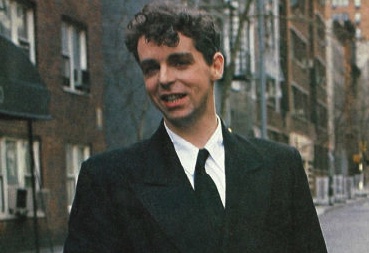 Neil Tennant of Pet Shop Boys days Tennant and Chris Lowe met in an electronics shop on Kings Road in Chelsea, London in August 1981. Recognising a mutual interest in dance music, they began to work on material together, first in Tennant's flat in Chelsea and from 1982, in a small studio in Camden Town. It was during those early years that several future hit songs were created, including "It's a Sin", "West End Girls", "Rent" and "Jealousy". At Smash Hits, an opportunity arose for him to go to New York to interview The Police. While there, Tennant arranged to meet Bobby Orlando, a producer whom both he and Lowe admired. Tennant mentioned that he was writing songs in his spare time and Orlando agreed to record some tracks with him and Lowe at a later date. Orlando subsequently produced the Pet Shop Boys' first single, "West End Girls". According to the musician Tom Stephan, aka Superchumbo, they had a two-year romantic relationship. Pet Shop Boys have an almost equally influential career as producers. Tennant was the executive producer for the Rufus Wainwright album Release the Stars.
1955 – Vinnie Curto, born in East Boston, is a retired American professional boxer in the Super Middleweight division. Curto was managed by actor Sylvester Stallone and trained by Angelo Dundee. Curto was born to a couple who allegedly were both homosexual; his father was also allegedly an alcoholic who abused Curto sexually. Curto lost twice to IBF Champion Chong-Pal Park. The first bout was a very disputed decision in South Korea and then a stoppage loss with just seconds left. On September 20, 1996, Curto won the World Boxing Federation Super Cruiserweight Title in Lincoln, Nebraska. Curto has made various film and television appearances. He made his on-screen debut on November 9, 1984, when he appeared on the first season of Miami Vice in Episode 7 entitled "No Exit". He played a bodyguard for Tony Amato, played by Bruce Willis.
1965 – Alec Mapa is an American actor, comedian and writer. He got his first professional break when he was cast to replace B.D. Wong for the role of Song Liling in the Broadway production of M. Butterfly. He later gained notoriety for the roles of Adam Benet in Half & Half and Suzuki St. Pierre in Ugly Betty which are his best known roles. He is also known for his recurring role as Vern in Desperate Housewives. He co-hosted with Calpernia Addams the Logo network reality dating game show Transamerican Love Story. He is currently recurring in the role of Renzo in Switched at Birth. He wrote and performed in a one-man play titled "I Remember Mapa", about his experiences growing up gay in San Francisco. Mapa is openly gay and lends his support to various projects supporting the gay, lesbian, and Asian American communities. In 2008, Mapa legally married Jamison 'Jamie' Hebert, after dating since 2002. On the TV series The Gossip Queens, Mapa stated in the opening episode that he and his husband had recently adopted a 5-year-old boy. Mapa is Filipino American.
1967 – Tyron Garner (d.2006) was one of two plaintiffs in the Supreme Court case of 2003 that overruled a Texas sodomy law in the broadest possible terms, effectively making homosexual relations a basic civil right. Garner and John Lawrence were arrested between 10:30 p.m. and 11 p.m. on Sept. 17, 1998, and charged with violating the Texas Homosexual Conduct Law by a sheriff's deputy who said he had witnessed them in the act. They had been introduced to each other by Robert R. Eubanks, with whom Mr. Garner was romantically involved when he was arrested. Lawyer's interviews showed that Mr. Garner and Mr. Lawrence were occasional sexual partners, not in a committed relationship. An anonymous phone call (actually by a jealous Eubanks) called the Sherriff Department to Lawrence's apartment at 10.30 pm. The police entered with trepidation. Inside, a still-mysterious man on the telephone directed them to a bedroom in the back. The deputies shouted out several times and entered the bedroom. They said Mr. Garner and Mr. Lawrence were engaged in sex. One deputy said they continued obliviously for as long as a minute. Another deputy said they stopped immediately. The men pleaded not guilty at their arraignment but later changed the pleas to no contest at the urging of lawyers eager to challenge the constitutionality of the law, not the factual basis of the arrests. The men were represented throughout the case by the Lambda Legal Defense and Education Fund, which defends gay men and lesbians. Their convictions were overturned by a three-judge panel of a state appeals court and then upheld, 7-2, by the full court. After the state's highest court rejected the case, the men appealed to the Supreme Court. On June 26, 2003, the court overruled sodomy laws, which it had upheld in 1986 from a Georgia case. In the opinion he wrote for the 6-3 majority, Justice Anthony Kennedy said the earlier interpretation "demeans the lives of homosexual persons." Kennedy said that gay men and lesbians were "entitled to respect for their private lives" and that the state could not "control their destiny by making their private sexual conduct a crime." Mr. Garner took quiet pride in his place in history. "I don't really want to be a hero," he said in an interview with The Houston Chronicle in 2004. "But I want to tell other gay people, `Be who you are, and don't be afraid.'"
Harold was born in Atlanta, Georgia. His father was an engineer and his mother a real estate agent. Because Harold's parents were devout Pentecostals, he had strict religious upbringing. At age 15, he left the church. Following graduation from The Lovett School, Harold attended American University in Washington, DC, on a soccer scholarship. He began a Liberal Arts degree in romance literature, departing after a few months and moved to San Francisco, California to study photography at the San Francisco Art Institute. He worked a variety of jobs including construction, bartender, waiter, and apprentice motorcycle mechanic and restorer. In 1997, a friend, Susan Landau, daughter of actor Martin Landau, suggested Harold try acting. He relocated to Los Angeles and began a 3-year period of intensive drama study. At 28, he was accepted into the Actors Conservatory Program with the classical theater company A Noise Within. In his theatrical debut, Harold appeared as "Bunny" in Gillian Plowman's Me and My Friends. In 2000, Harold was cast as Brian Kinney, a central character on Showtime's popular gay drama Queer as Folk, based on a British series of the same name.The American version became an unexpected hit, running three years longer than the original. During the summer-hiatus from Queer as Folk (between seasons one and two) Harold made his New York theatrical debut playing Josh in Uncle Bob. The role of Josh was difficult and very different from the one he was playing in Queer as Folk. The play received mostly positive reviews and Harold made an auspicious debut on New York theatrical stage. Harold is a supporter of the LGBT community. On July 16, 2012, at the first Annual Hot 100 Party hosted by the website After Ellen/After Elton, he recorded an It Gets Better video sending his message and advising gay teens to remember their heroes. In the one-minute video, he says:
Some of the most important people in my life lived through what a lot of you are going through right now. And they stayed true no matter how painful and they probably considered backing out many times, but I thank God that they didn't. For instance, someone like Tennessee Williams. If he hadn't done what he did, we wouldn't have that beautiful art to read and to watch on the stage and he closes with the phrase: "The truth will come out. It gets better."
1970 – The Austrian Parliament decriminalizes homosexual acts between consenting adults.
1985 – "Given a choice between sharing a park with homosexuals or a bunch of white-sheeted, racist, hate-peddling losers, we think we would prefer homosexuals." - an editorial in the Texas Daily News regarding an upcoming anti-gay rally by the Ku Klux Klan.

1987 – Brian Jordan Alvarez is an American actor and filmmaker. He is the creator of many comedic web videos, including the series The Gay and Wondrous Life of Caleb Gallo and "Divorce". He is openly gay. Alvarez was born in Manhattan and grew up in the city of Winchester, Tennessee. Alvarez has South American roots from the country of Colombia through one side of his family, and also roots from the American South from the other side of his family. In Middle School, he was teased and bullied a lot for his sexuality. While at the school, he was heavily involved in its theatre program. He continued to study acting at USC School of Dramatic Arts where he received his Bachelor of Fine Arts. For years, Alvarez formed part of numerous theatre productions growing up in Winchester. Since his days in the south, he has been part of several projects big and small. While at USC, he continued to be a part of plays and cinematic projects collaborating with many of the film students. He was involved in short films, music videos, and several other acting projects. He collaborated with College Humor on an episode titled, "Gay Men Will Marry Your Girlfriends". He has performed roles in several television shows including: Will & Grace, Hot in Cleveland, Life in Pieces, Jane the Virgin, Go-Go Boy Interrupted, and 2 Broke Girls.
[{(o)}]|[{(o)}]|[{(o)}]|[{(o)}]| [{(o)}]|[{(o)}] |
